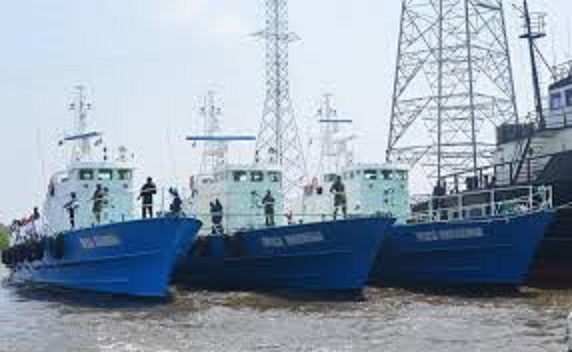The Nigerian Maritime Administration and Safety Agency (NIMASA) on Saturday called for development of a national policy on waste management.
The Director-General of NIMASA, Dr Bashir Jamoh, made the appeal at NIMASA’s special day at the ongoing 2021 Lagos International Trade Fair.
The fair organised by the Lagos Chamber of Commerce and Industry had the generic theme: ‘‘Connecting Businesses, Creating Value’’.
Jamoh who spoke on the topic: “Blue Economy Potential of Lagos State”, said that the policy would ensure that the country would harness its blue economy.
He was represented by Dr Momoh Alhassan, Assistant Director, Shipping Promotions, NIMASA.
Jamoh said that the policy should also look at waste as wealth.
He said that Lagos State maritime regulatory agencies must pay attention to waste management if the blue economy potential of the country’s waters must be properly harnessed.
“Improving marine litter management will therefore also require improving systems for solid waste collection, transport, recycling, re-use and final disposal.
“Recycling must be encouraged to reduce dumping of plastics all over; disposal of hazardous chemical waste related to agriculture and manufacturing poses another challenge as some coastal communities lack adequate facilities for storage and disposal,” he said.
He said that the impacts of marine litter included entanglement of and ingestion by marine animals, which had been identified as a global problem.
“Overall, marine litter affects economies, ecosystems, animal welfare and human health worldwide,” he said.
Jamoh said that, as regards renewable energy, Lagos as a litoral state could tap from the value of water to generate power.
“Lagos state with its huge population is dealing with energy issues due to huge demand.
“The state must begin to explore other newer and cheaper energy sources to meet the needs of its teeming population,” he said.
He listed some of the challenges of the blue economy to include climate change, marine pollution, under Investment and lack of maritime education.
He recommended that maritime education should be given priority attention, and called for proper harnessing of maritime tourism which, he said, could proffer great opportunities for Lagos State.
Mrs Toki Mabogunje, President of LCCI, noted that maritime sector was very important as there was no trade without maritime.
She added that with the African Continental Free Trade Agreement, it would be necessary to address all hiccups.
“The chamber recognises the importance of the maritime sector and the important role that NIMASA plays as a regulator.
“In recognition of that very important role of the maritime sector, this year, we inaugurated our maritime sector.
“This maritime sector brings all the actors to play – ship owners, sea fairers – all of them, all in a bid to speak with one voice,” she said.




